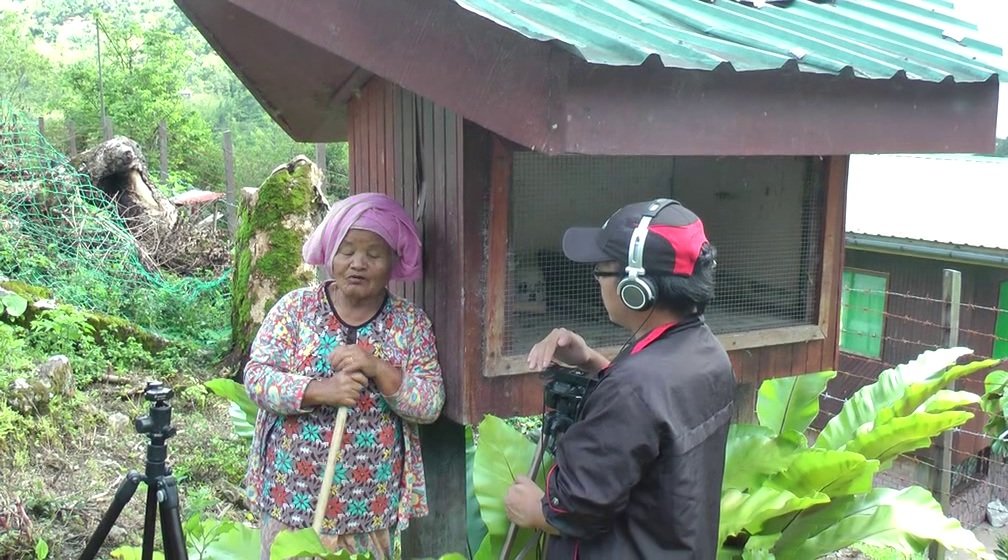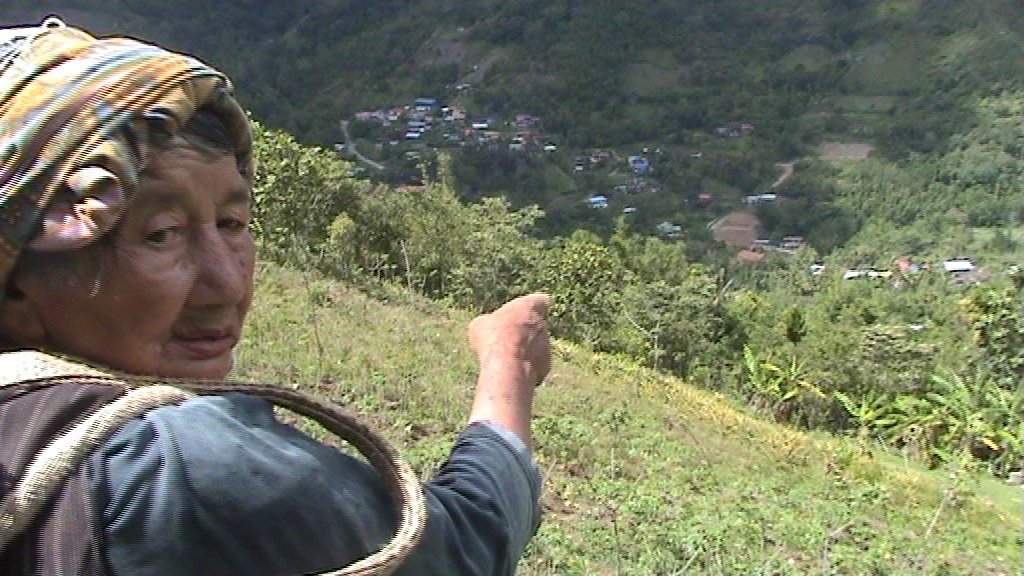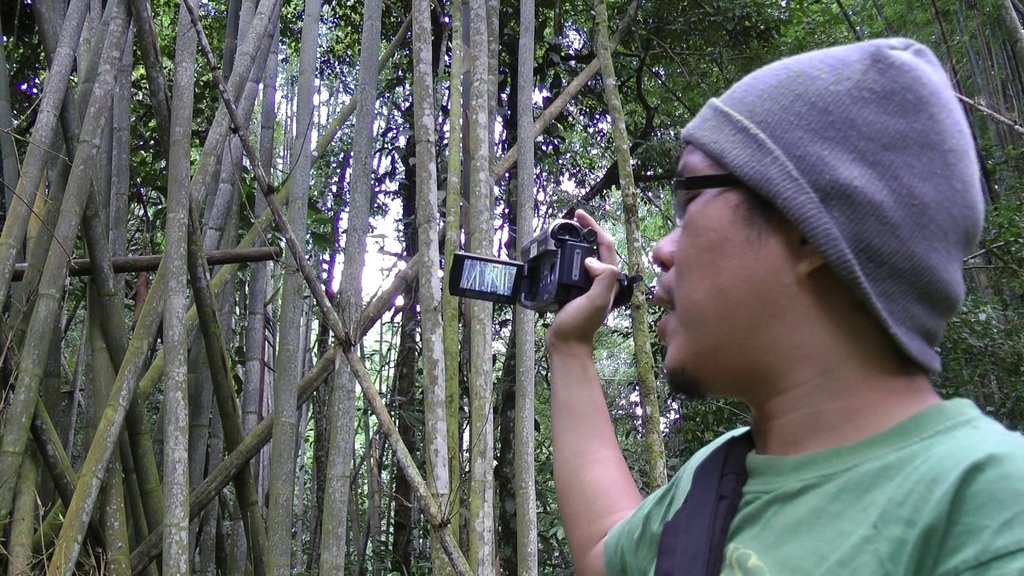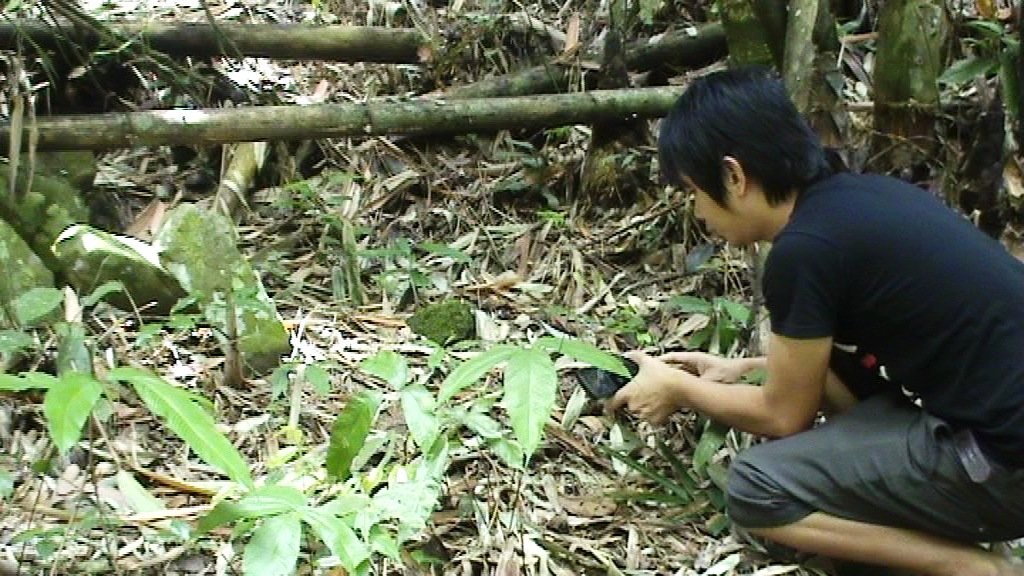By Remmy Alfie | Community Researcher from Bundu Tuhan
Told by Remmy in Bahasa Malaysia (the national language of Malaysia)
Late last year, I had the exciting opportunity to work with fellow Community Researcher, Henry Roger, and other members from my community to produce a short film entitled “Cultural heritage and traditions of the indigenous people of Bundu Tuhan Village: Conserving and strengthening cultural and traditional heritage sites”. I would like to share our experience with you in making the film, which took us 10 days to complete.
We used community filmmaking, an approach that enables communities to present our point of view through the medium of film, to develop a grant application to First Peoples Worldwide (FPW). We realised very early on that the personal stories and knowledge of our community is what we needed the most to create an interesting film, and we wanted to be sure that everyone would be satisfied with the outcome of the film.
After working with Henry on the overall framework for the story, we sought approval from our village leaders and members, a process made easy because of the rapport we have with them. We then developed a storyboard which was reviewed by our leaders for accuracy and to ensure that it would not be the cause of any controversy.
An interesting turn of events occurred while interviewing my grandmother, one of the storytellers in the film. Her sudden decision to sing an olden day traditional wedding song prompted the idea to ask her to narrate her whole story in song. To me, this was instrumental in producing an interesting film, proving that the experience of our elders stimulates creativity, which in this case affected the entire style of our film. We decided to apply this ‘narration through song’ to all the other interviews in the film as well.
Although community filmmaking is not something new to us anymore, we are constantly learning more. As community researchers, we were first trained in the art of filmmaking by the Global Diversity Foundation (GDF) as a tool to document and highlight the lives of our community. Since then, through hands-on experience in our village and as participants of the SUARA Community Filmmaking Programme, a programme that has run for two consecutive years now, we have enhanced our filmmaking skills with new techniques and knowledge.
During the making of this short film, we learned: a short film can be successfully made by two people as long as there is enough determination to create something beneficial for our community; proper planning is needed in all steps of filmmaking to ensure that time is not wasted; and, involving people of all ages can bring different perspectives and ideas to a story. With our limited crew, we found we took more effort in understanding the entire storyline and gained more experience in all aspects of filmmaking. However, we also realised that with a small crew, we each had to take on many roles. This caused constraints - for example, we could not film from many different angles at a time. This restriction was magnified by the lack of equipment available.
To complete the film and ensure its suitability for First Peoples Worldwide, we sought help from GDF who assisted us by preparing English subtitles and providing technical advice to improve the final cut. We are very proud with the outcome of this film. Apart from its original purpose, this film is being used to create awareness among our community, motivating, in particular, the younger generation to conserve the traditions and culture of our ancestors. It is also an important tool that can be used to engage others who are interested in supporting our conservation activities. We are forever grateful to our community elders for sharing their knowledge and experience. Community filmmaking is just one way in which we can ensure that knowledge of our culture and traditions is passed on.
Image Descriptions:
Footnote:
The SUARA Community Filmmaking Programme, an integral component of the Borneo Eco Film Festival, is an annual event celebrating Borneo's biocultural diversity through showcasing environmental films and nurturing local community filmmaking. GDF co-hosted the programme in 2011 and 2012.
Links:
Project reports on GlobalGiving are posted directly to globalgiving.org by Project Leaders as they are completed, generally every 3-4 months. To protect the integrity of these documents, GlobalGiving does not alter them; therefore you may find some language or formatting issues.
If you donate to this project or have donated to this project, you can receive an email when this project posts a report. You can also subscribe for reports without donating.



